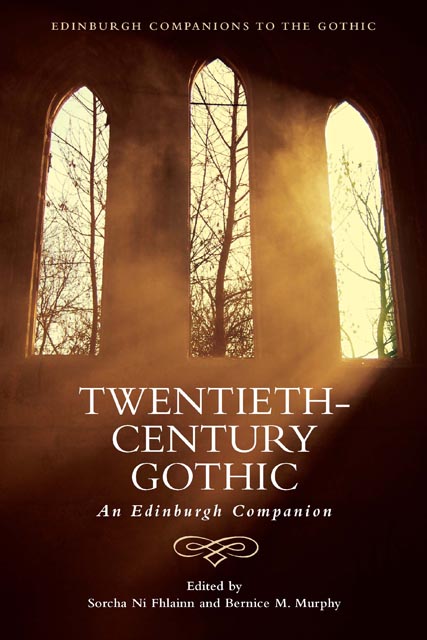17 - ‘Nightmares of the Normative’: African American Gothic and the Rejection of the American Ideal
Published online by Cambridge University Press: 18 November 2022
Summary
In 1919, less than a year after returning from fighting in the US armed forces alongside Allied troops, after working in factories to provide munitions and bolstering the US economy through investments in bonds, Black soldiers and citizens confronted a brutal truth: all their efforts to prove their allegiance and assimilation to dominant, white US society were fruitless. As white Americans attacked uniformed Black soldiers, firebombed Black businesses and waged open warfare on Black citizens, African Americans realised that their attempts to prove their normativity would never make them ‘American’. The June 1919 bombings signalled the beginning of a ‘reign of terror in the United States’ to white Americans but not because of the violence African Americans suffered; rather, white Americans believed that Blacks were deserving of destruction despite evidence to the contrary. Consequently, in the midst of the white terror now known as the Red Summer of 1919, many US Blacks began to question the ideals and values inherent in the behaviours, beliefs and attitudes constituent of American normativity.
African American Gothic fiction began to reject notions of the idyllic heteronormative American existence, exploring how it is a simplification requiring allegiance to alienating notions of race, gender and socio-economic class. The era was a turning point in Black Gothic literature. Nineteenth- and early twentieth-century writers such as slave narrative authors wrote literature testifying to the horrors of being denied humanity and citizenship, while their descendants wrote texts rooted in rejecting modern ideas of ‘progress’. As fictions such as Richard Wright's ‘The Man Who Lived Underground’ (1945) and films such as Amiri Baraka's (writing as LeRoi Jones) Dutchman (1966) reveal, all are enslaved and damned by embracing the modern, heteronormative, capitalist systems that define America.
In pulling a portion of my title from Roderick Ferguson's essay ‘Nightmares of the Heteronormative’, I point to the ways that heteronormativity has been used as both bait and prison for African Americans. Ferguson argues that white Americans perpetually mark Black culture as ‘queer’ in order to further politically and economically disenfranchise Blacks. Blacks, reacting to the trauma of being deemed non-heteronormative, embraced respectability politics in which they attempted to be more (hetero)normative than even the average white American.
- Type
- Chapter
- Information
- Twentieth-Century GothicAn Edinburgh Companion, pp. 273 - 289Publisher: Edinburgh University PressPrint publication year: 2022



